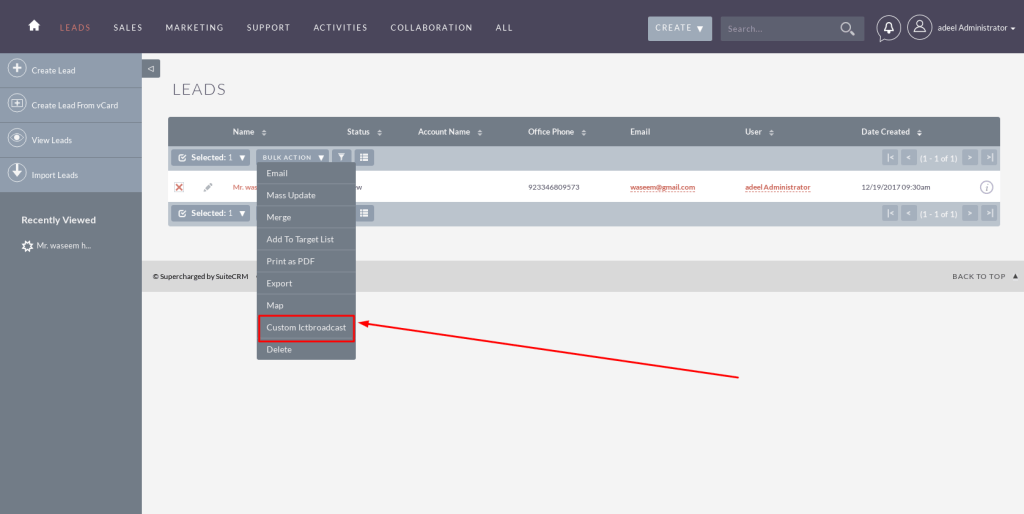In today’s fiercely competitive business landscape, the importance of Customer Relationship Management (CRM) cannot be emphasized enough. It has become an indispensable tool for companies seeking to forge lasting and meaningful bonds with their customers. CRM systems play a pivotal role in simplifying sales, marketing, and customer service processes, providing invaluable insights, and ultimately elevating overall customer satisfaction. However, when CRM is seamlessly woven into call center operations, its influence on customer relationship management experiences a remarkable upswing. This article explores the benefits and virtues of integrating CRM with call centers and sheds light on how this integration can profoundly enrich customer relationships.
Understanding CRM with Call Center Integration:
Integrating CRM with call center operations entails the smooth merging of CRM systems and call center software, resulting in a unified platform. This integration equips businesses to unlock the complete potential of their CRM data, offering a holistic customer experience by consolidating customer data, communication channels, and support functions. This fusion empowers call center agents with extensive access to customer information, historical interactions, and real-time insights. As a result, they can tailor interactions and deliver outstanding customer service, ultimately leading to a more personalized and satisfying customer experience.

Benefits of CRM with Call Center Integration:
Enhanced Customer Experience: The integration of CRM and call center operations empowers companies to attain a profound and all-encompassing insight into their customers. By providing call center agents with access to comprehensive customer profiles that encompass purchase history, preferences, and previous interactions, organizations enable their agents to offer tailored and individualized solutions. This personalized approach not only enriches the overall customer experience but also fosters loyalty and amplifies customer satisfaction.
Improved Efficiency and Productivity:
CRM integration streamlines call center operations by automating processes and reducing manual tasks. Call center agents can easily access customer information, reducing the time spent on searching for data and allowing them to focus on solving customer issues promptly. Automated workflows and intelligent routing ensure that calls are directed to the most appropriate agents, leading to increased efficiency and productivity.
Seamless Omnichannel Experience:
CRM integration empowers companies to deliver a seamless omnichannel experience to their customers. By incorporating call center operations, customers can engage with the company through multiple channels, including phone, email, live chat, or social media. Irrespective of the chosen channel, the customer’s interaction history and information are readily accessible, guaranteeing a uniform and tailored experience across all touchpoints.
Data-Driven Insights:
Integrating CRM with call center operations generates valuable data and insights. By analyzing call center data within the CRM system, businesses can identify trends, patterns, and customer behavior, allowing them to make informed decisions. These insights can be used to develop targeted marketing campaigns, improve products or services, and optimize customer support strategies.
Proactive Customer Support:
With CRM and call center integration, companies can adopt a proactive approach to customer support. By analyzing customer data, companies can identify potential issues or needs before customers even contact the call center. This allows for proactive outreach, providing timely assistance and solutions, which can significantly enhance customer satisfaction and loyalty.
Implementation Challenges and Considerations:
While the benefits of CRM with call center integration are compelling, it is essential to consider the challenges and potential roadblocks that may arise during implementation. Some key considerations include:
Integration Complexity:
Integrating CRM systems with call center software requires technical expertise and careful planning. Compatibility issues, data migration, and system configuration are some of the complexities that need to be addressed to ensure a smooth integration process.
Training and Adoption:
Employees, particularly call center agents, may require training to adapt to the integrated system. Adequate training and change management strategies are crucial to ensure successful adoption and optimal utilization of the integrated CRM and call center system.
Data Security and Privacy:
Integrating CRM and call center operations involves sharing sensitive customer data between systems. Ensuring data security and privacy should be a top priority, with appropriate measures in place to protect customer information and comply with data protection regulations.
Conclusion:
Integrating CRM with call center operations has proven to be a game-changer for businesses aiming to build strong and lasting customer relationships. The seamless merging of customer data, communication channels, and support functionalities empowers call center agents to deliver personalized experiences and exceptional customer service. The benefits of CRM with call center integration are numerous, including enhanced customer experiences, improved efficiency and productivity, seamless omnichannel interactions, data-driven insights, and proactive customer support.
By leveraging the power of CRM, businesses can gain a 360-degree view of their customers, allowing them to understand their preferences, purchase history, and previous interactions. This knowledge enables call center agents to provide personalized solutions, fostering loyalty and increasing customer satisfaction. The automation of processes and intelligent routing streamline call center operations, resulting in increased efficiency and productivity.
Leveraging Open Source in ICT
